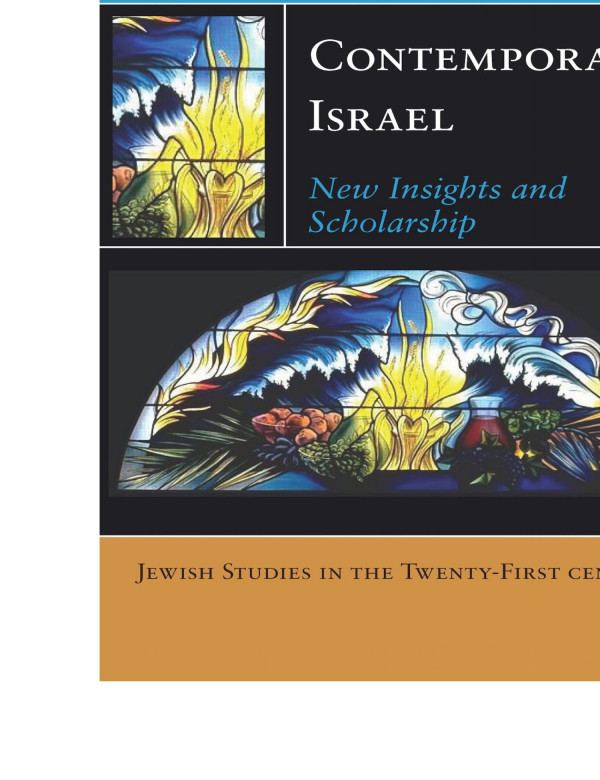

Most ebook files are in PDF format, so you can easily read them using various software such as Foxit Reader or directly on the Google Chrome browser.
Some ebook files are released by publishers in other formats such as .awz, .mobi, .epub, .fb2, etc. You may need to install specific software to read these formats on mobile/PC, such as Calibre.
Please read the tutorial at this link: https://ebookbell.com/faq
We offer FREE conversion to the popular formats you request; however, this may take some time. Therefore, right after payment, please email us, and we will try to provide the service as quickly as possible.
For some exceptional file formats or broken links (if any), please refrain from opening any disputes. Instead, email us first, and we will try to assist within a maximum of 6 hours.
EbookBell Team

4.1
20 reviewsFor a country smaller than Vermont, with roughly the same population as Honduras, modern Israel receives a remarkable amount of attention. For supporters, it is a unique bastion of democracy in the Middle East, while detractors view it as a racist outpost of Western colonialism. The romanticization of Israel became particularly prominent in 1967, when its military prowess shocked a Jewish world still reeling from the sense of powerlessness dramatized by the Holocaust. That imagery has grown ever more visible, with Israel’s supporters idealizing its technological achievements and its opponents attributing almost every problem in the region, if not beyond, to its imperialistic aspirations.
The contradictions and competing views of modern Israel are the subject of this book. There is much to consider about modern Israel besides the Middle East conflict. Over the past generation, a substantial body of scholarship has explored numerous aspects of the country, including its approaches to citizenship and immigration, the arts, the women’s movement, religious fundamentalism, and language; but much of that work has to date been confined within the walls of the academy. This book does not seek not to resolve either the country’s internal debates or its struggle with the Arab world, but to present a sample of contemporary scholars’ discoveries and discussions about modern Israel in an accessible way. In each of the areas discussed, competing narratives grapple for prominence, and it is these which are highlighted in this volume.